Writer-Director James Gunn has no business helming a mega blockbuster for Marvel Studios. That’s what logic would have you believe.
Gunn’s big break came from tireless hypeman Lloyd Kaufman, the absurdist indie movie maven who co-founded Troma Entertainment and created no-budget cult fare like The Toxic Avenger.
And one of the most highly anticipated releases of the year is Guardians of the Galaxy Vol. 2 (produced by Marvel Studios and distributed by Walt Disney Studios), the sequel to the critical and commercial smash, which was released in 2014 and grossed nearly $800 million worldwide.
With hindsight being 20/20, the notion of anyone other than Gunn as the chief creative mastermind steering the Guardians film franchise seems hard to imagine. Marvel and Disney agree. At the time of this writing, the sequel hasn’t been released, but it’s been announced that Gunn’s services have been secured for Guardians of the Galaxy Vol. 3. Credit Marvel/Disney for knowing a good thing when they see it, and give extra credit to Kevin Feige, president of Marvel Studios, who hand-picked Gunn to helm the original Guardians, at a time when Gunn as a blockbuster director was a long shot at best.
The late seventies and early eighties saw the rise of George Lucas, Steven Spielberg, Brian DePalma, Martin Scorsese, and Francis Ford Coppola, who brought so many fresh ideas to Hollywood. Some might say the modern era equivalent consists of J.J. Abrams, Joss Whedon, M. Night Shyamalan, Jeff Nichols, Christopher Nolan, Guillermo del Toro and… James Gunn.
James Gunn is pure punk rock. An unapologetic oddball. And who better to tell the story of galactic misfits who band together to become one perfectly dysfunctional family?
Guardians of the Galaxy was never the “A” team/book in the Marvel Comics universe. You could make a convincing case that Gunn’s movie, his portrayal of the characters, his handling of their quirks and quips, the heart and warmth he brought to the table (along with some impeccable casting choices), elevated the characters to heights that their comic book counterparts had never soared to. And there’s no denying the film’s success raised the stock and profile of these characters. The Guardians had never been viewed as mainstream characters or as a franchise property, not like The Avengers or The X-Men.
Gunn saw the characters for what they were, maybe more, and perhaps better than anyone had previously. Viewing the film’s success as a happy accident would be a major slight to Gunn and the cast. Gunn didn’t mishandle the characters. He wasn’t putting lipstick on a pig, so to speak. It was quite the opposite, actually. Gunn was bringing a version of the Guardians to the screen that treated them as three-dimensional personalities, as if their actions mattered and had potential ripple effect consequences throughout the Marvel Universe. They were most definitely not the Avengers, but that didn’t mean the personal journeys of these heroes and character arcs should mean any less to the characters involved, and by extension, the audience. Presenting them in a warts-and-all manner made them more accessible. More authentic. Less than perfect. And completely original.
Among its oddities, Guardians of the Galaxy had a talking raccoon and a lumbering, talking tree. And Gunn managed to make this one of Marvel’s most human offerings to date. Even jaded moviegoers would be hard-pressed to deny the film’s appeal, or at least walk away after the end credits, smiling a little.
Gunn didn’t necessarily graduate to mainstream blockbusters when he got the nod from Kevin Feige. Gunn brought all the pieces from his past, all the experiences, the professional successes and failures (and perhaps the personal ones as well), and pivoted and transitioned and applied them to a larger canvas. This was still the James Gunn aesthetic on display, except now his work would have the opportunity to be seen by a much, much, much larger audience. Even if the first Guardians flopped, the lowest possible audience turnout would still be the most exposure for a James Gunn-directed film up to that point.
Imagine that.
A movie chock full o’ characters from Marvel Comics getting more attention than Gunn’s screenwriting debut, the Lloyd Kaufman-directed Tromeo and Juliet (1996). Gunn is eternally grateful for the Troma opportunity. Gunn earned about $150 for his writing efforts on the Troma feature, but it was more of a personal investment. The Troma door was now open to Gunn, and he was earning a weekly salary and getting a crash course on guerilla filmmaking, from editing to directing to distributing to designing posters and marketing.
Gunn learned by total immersion. And Troma was a perfect fit for Gunn, who might have been considered an outcast at the time, much like Lloyd Kaufman, but Gunn is wickedly smart, having earned a Master of Fine Arts from Columbia University in 1996. Never judge a book by its cover, as Kaufman is deceptively sharp as well, himself a graduate from Yale University (majoring in Chinese studies, he was friends at an early age with Oliver Stone, who was a fellow Yale classmate, as was George W. Bush). Gunn’s higher education appealed to Kaufman, along with his passion for films.
Originally Gunn wanted to be a novelist. He’s stated in interviews that while he considered himself a talented writer, he wasn’t exactly enthralled with where things seemed to be headed on that front. He did sell a novel called The Toy Collector, released in 2000 by Bloomsbury. The back cover reads: “In this wickedly funny novel, a young orderly at a Times Square hospital sells stolen pharmaceuticals to finance his growing addiction to memorabilia.”
The book received a blurb from Katherine Dunne, author of Geek Love, calling it “Hilariously grim, brilliant, and ruthless.” The Village Voice said: “The book is half Denis Johnson’s druggy, Jesus’ Son mixed with Lynne Reid Banks’s Toys ‘R’ Us kids’ classic, The Indian in the Cupboard.”
In addition to The Toy Collector, Gunn co-wrote All I Need to Know about Filmmaking I Learned from the Toxic Avenger. It’s much easier to find and purchase an affordable copy of the filmmaking book Gunn co-wrote with Lloyd Kaufman than it is to score a nice, clean copy of The Toy Collector, which may indicate that Gunn made the wise choice listening to his gut to pursue a sustainable career making a living in the movies than one in writing novels.
Troma was an amazing learning experience for Gunn, and soon his career really started to take off as a screenwriter, selling the live-action hit Scooby-Doo (2002), Scooby-Doo 2: Monsters Unleashed (2004), and the remake of Dawn of the Dead (2004). Of note: inside the paperback for The Toy Collector, Gunn is listed as the screenwriter for Spy Vs. Spy (based on the Mad Magazine cartoon), a film that never materialized.
Gunn’s version of Scooby-Doo was originally aimed at the teen market, edgier in spirit, but the film was toned-down for younger audiences. Gunn was supposed to write and direct a third Scooby-Doo film, but it never happened because the studio bean counters applied their equations and formulas and predicted that a third installment would not give them a return on their investment, after somewhat diminishing returns of the sequel (not uncommon in the movie industry).
Scooby-Doo was a huge hit, and with its sequel and Dawn of the Dead both topping the box office in consecutive weeks in 2004, Gunn’s name had serious buzz surrounding it.
During a panel at Emerald City Comic Con, Gunn said director David Cronenberg (Scanners, Videodrome, the remake of The Fly), and shock rocker Alice Cooper were big influences on him as an artist. In particular, Gunn was fond of the creepy horror movies from the ‘80s that seemed to have all but disappeared, movies like Evil Dead 2 and early Peter Jackson films, creepy and over-the-top gross-outs, but not necessarily extremely (or realistically) scary. This gave birth to the fun B-movie throwback Slither (2006), starring Nathan Fillion, Elizabeth Banks, and Michael Rooker.
Slither, Gunn’s first outing as both writer and director, was a sci-fi-horror-comedy mash-up that would have been perfectly at home playing at a drive-in theater. Unfortunately, the tone confused the executives. It wasn’t even going to get a prescreening for the reviewers, but Gunn, at the eleventh hour, fired off an email in the middle of the night to the studio and pleaded his case. Gunn believed in the movie, and his fear was that if critics didn’t see the film, positive reviews or not, there would be no press write-ups to advertise the film, and Slither wouldn’t even have a fighting chance. His email worked, and the film was shown ahead of time to the critics, and it earned solid write-ups. It wasn’t enough to get audiences out of the house to buy tickets. Moviegoers frequently call out studios for only releasing sequels or reboots or remakes, and not taking chances on fresh material, and Slither’s lackluster performance is one example of why studios often play the safe hand.
Gunn considered the film a success because he made the movie he wanted to make, and while it underperformed, he has said that without sending out his email, it’s possible that the film would have not been seen by anyone. Over the years the film has found an audience on DVD and cable, and this year Scream Factory is releasing a special collector’s edition Blu Ray loaded with extras.
Slither was followed up with the polarizing Super (2010). This film showed again that James Gunn would not compromise his vision, even knowing that vision could have a limited audience. But he wanted to be true to the story and the characters. He’s described it as his art movie. The cast features Rainn Wilson, Ellen Page, Liv Tyler, Kevin Bacon, Nathan Fillion, and Michael Rooker. The screenplay sat around for years. Originally James Gunn wanted John C. Reilly in the lead role, but at the time it was being shopped around, no one other than Gunn saw Reilly as someone who could do comedy and sell tickets to a film.
Super is dark and violent and tells the story of DIY crime fighter Frank Darbo (aka the Crimson Bolt), played by Rainn Wilson. Gunn’s ex-wife, actress Jenna Fischer, mentioned the script to her co-star from The Office, Rainn Wilson. Gunn sent Wilson a copy of the script, and Wilson quickly attached himself to the project.
Every member of the cast worked for scale, and the low budget and tight schedule allowed Gunn freedom to make the creative choices he wanted, without having to answer to some huge studio. Super wasn’t expected to be a huge blockbuster and it didn’t have to be. I’m not sure the film has found the cult-like following that Slither has built over the years, but whether you’re a fan of Super or not, it shows a director with a certain confidence about him. Even on a shoestring budget (by Hollywood standards), Gunn was able to deliver the film he wanted, a lesson from his days working for Lloyd Kaufman at Troma. Gunn believes in telling stories that give audiences who might feel disenfranchised a sense of hope that they are not alone in this world, and a sense that there are others out there who share similar viewpoints, interests and tastes. Gunn gives voice to the underdog.
When promoting Super, Gunn was asked by a fan if he’d ever want to write comic books (the Emerald City Comic Con Q&A panel with James Gunn and Rainn Wilson is a supplement on a limited bonus disc included with some copies of the Super Blu Ray). In a bit of irony, Gunn mentions that he had something set up with Marvel to write a comic book for them, and he was certainly interested, but the project fell apart because of various issues on his end, such as timing.
What a difference a couple of years can make.
In September of 2012, James Gunn was hired to write and direct Marvel’s Guardians of the Galaxy. It was a long way from his time at Troma, but James Gunn’s fingerprints are all over that film. James Gunn took a Marvel movie and made it a James Gunn movie. Maybe it’s like listening to one of Gunn’s personal mix tapes, because all the hits are present and accounted for: the themes of outcasts finding something to bond over, strangers becoming “family” in the face of adversity, the pop meets punk rock aesthetic, the journey to self-discovery, the strong, independent female characters, the sly, smartass sense of humor, and oh yeah, Michael Rooker, of course.
Guardians of the Galaxy Vol. 2 hits theaters May 5th.
Something tells me the Guardians are in good hands.

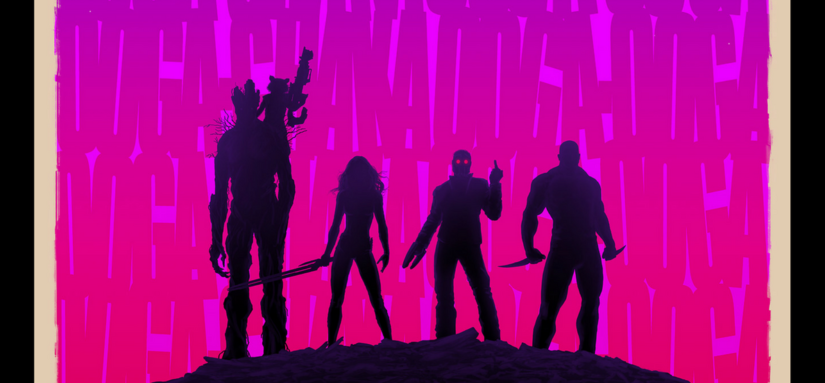
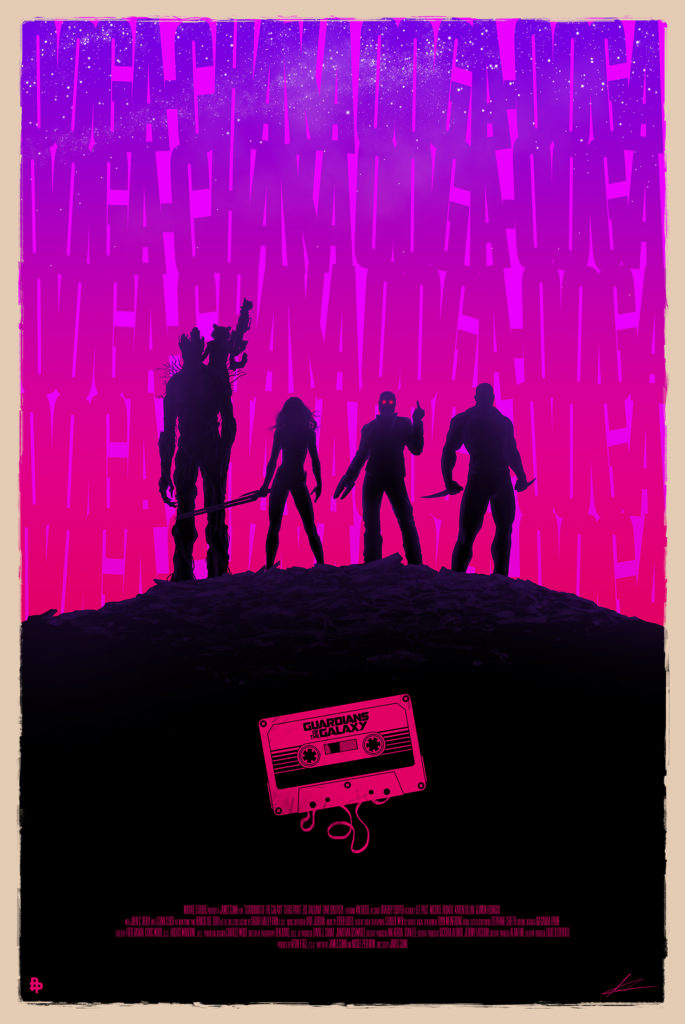
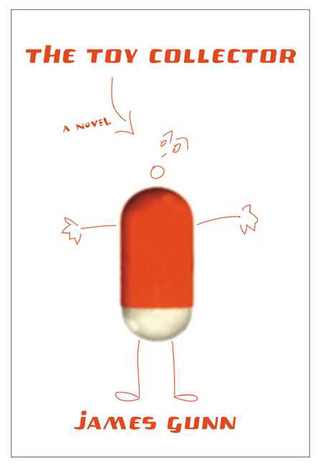
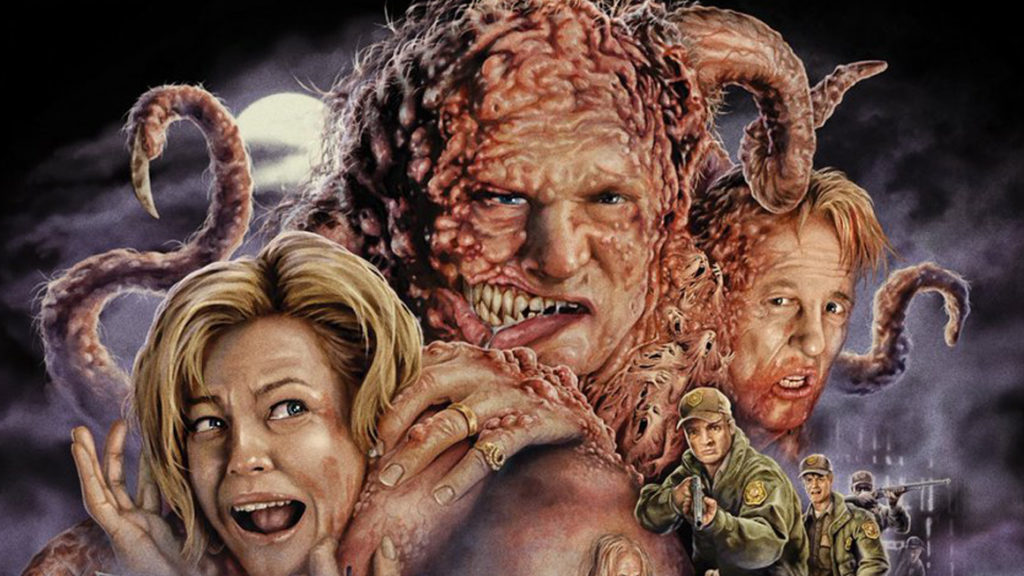
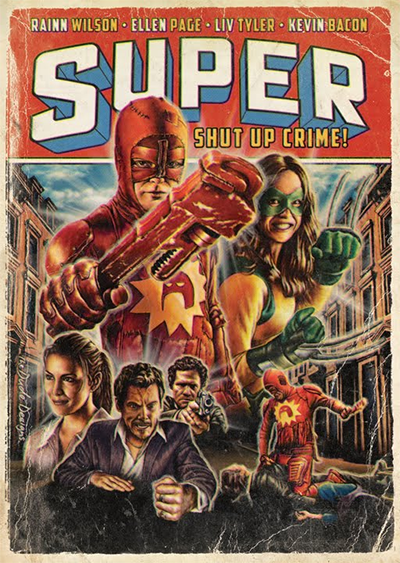
Comments are closed.